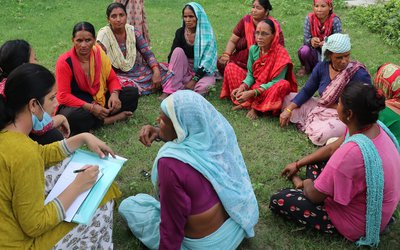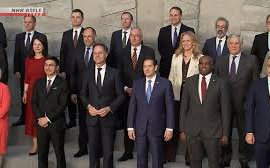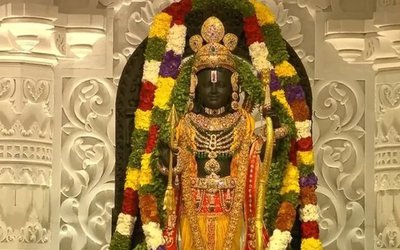Nine months into the election for a new constituent assembly the lawmakers have expedited works to meet the one-year deadline they had set themselves to accomplish what their predecessors failed to -- write the constitution.
The crucial committee chaired by Maoist leader Baburam Bhattarai has held series of important dialogue with stakeholders. He claims that progress has been satisfactory and that there is no room for doubts about meeting the deadline. But the loggerheads at which his party led by arch-rival Pushpa Kamal Dahal find itself with the two major parties has of late been causing serious doubts.
The bone of contention has been whether there should be a high-level political mechanism "to facilitate" the constitution-making and whether Dahal should be made its chairman. Even as Bhattarai seemed to remain non-committal, Dahal has appeared adamant that the mechanism be put in place and that he be made its head. He has warned that the constitution-making process would be endangered if the other major parties did not heed to his call. And that the Nepali Congress and the United Marxist-Leninist (UML) will be held responsible if the country failed to get a new constitution within the deadline. But the Nepali Congress and the UML which constitute the largest partners of the coalition government are wary. They suspect Dahal's motive in derailing the whole exercise.
While seeking a role for himself in the constitution-making even as the key rival within the party, Bhattarai, braces for the bigger credit, the Maoist chief has brought together smaller "federalist and identity-seeking" parties to present himself as someone championing their cause. Together, they account for less than a third of the 601-member strong CA. The NC-UML combine has a comfortable two-third majority required to get the constitution endorsed in the event of a vote.
The mathematically divergent strengths and positions has now threatened to come in the way of a new constitution on time. Many issues had been settled in the first version of the CA, but a few critically crucial issues remain. The state restructuring and the form of the government are two of them.
At a time when there had been indications that hard-line 'federalists' led by the Maoists and their 'moderate' counterparts had bridged their differences on the form of the government -- presidential or the prime ministerial -- the fresh row has threatened to pull them apart. This could cloud the atmosphere to untie the even knottier issue of state-restructuring.
The NC-UML combine has made it clear that they can in no way entertain the Maoist chief's demand to head a high-level political mechanism. Dahal, on his part, has warned that the entire proceedings of the CA would be disrupted.
The former maintain that with an-all party committee already in place at the CA, that also under the head of none other than a top opposition leader Baburam Bhattarai, the new mechanism would only create complications, confusions and contradictions thus effectively blocking the promulgation of the constitution by the said deadline.
But Dahal, backed by the alliance of Madhesi parties and the ethnic-based entities, suspects a foul play by the two biggest parties on the strength of their numbers at the CA.
It is clear that the long-running crisis of confidence that led to the death of the first CA has resurfaced. Unless it is addressed before it is too late the unfortunate past will have every chance of repeating at the stroke of the 1-year deadline for a new constitution.
- Ukrainian Crisis And The World (Dis)Order
- Apr 22, 2022
- China’s Cautious Steps In The Graveyard Of Empires
- Aug 18, 2021
- Foreign Aid On The Fence!
- Aug 08, 2021
- Communist Party of China centenary celebrations Reading between the lips
- Jul 14, 2021
- Second Wave Of Covid-19 In India: Deadly Blow To The Economy
- Jun 23, 2021
















